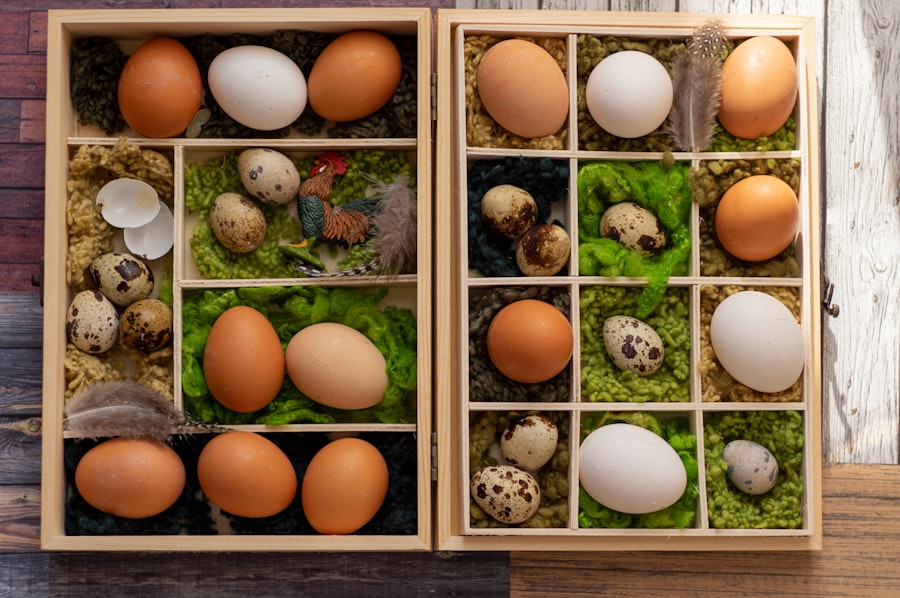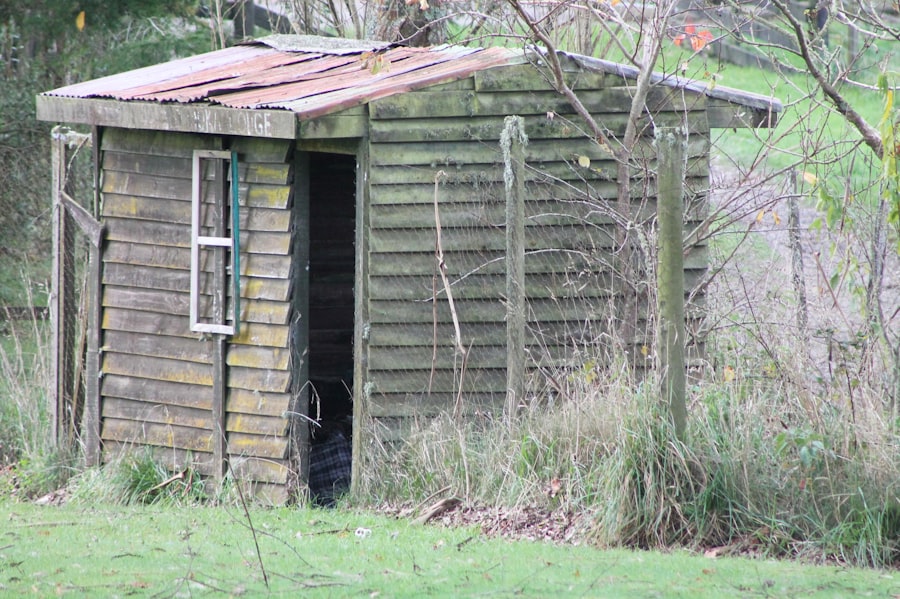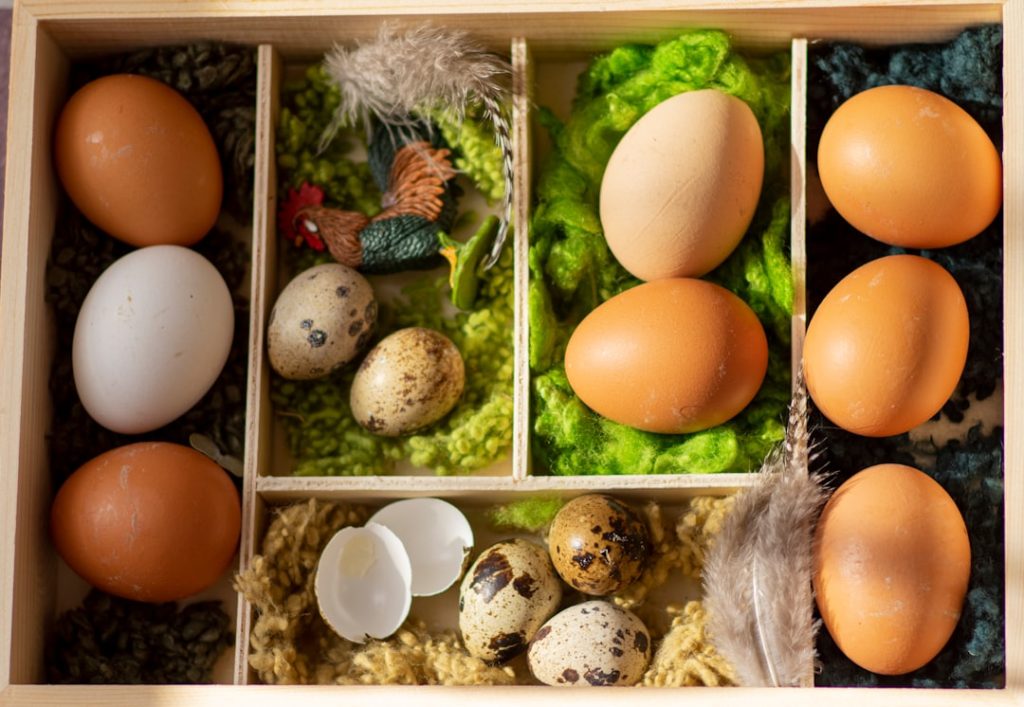Initial setup costs for raising chickens include several essential components. A suitable coop or housing structure is a primary investment, ranging from simple DIY options to more elaborate pre-made designs. Feeders, waterers, and nesting boxes are necessary equipment for the chickens’ daily needs and egg-laying.
Fencing is often required to create a safe outdoor area for the chickens to roam. In colder climates, heating lamps or insulation may be necessary to maintain appropriate temperatures. The purchase of chickens themselves is another significant initial cost.
Whether acquiring chicks or adult hens, there is an expense associated with obtaining the flock. Basic medical supplies, such as first aid kits and supplements, are important for maintaining the chickens’ health. Bedding and litter for the coop are ongoing necessities.
Additional accessories like perches or toys may be considered to enhance the chickens’ environment. Careful budgeting and planning for these initial setup costs are crucial to ensure a comfortable and safe environment for the chickens from the outset. By thoroughly considering these expenses, individuals can be well-prepared to begin their chicken-raising endeavor.
Table of Contents
Key Takeaways
- Initial setup costs for raising chickens include purchasing a coop, feeders, waterers, and heat lamps.
- Housing and coop maintenance involves regular cleaning, repairing any damages, and providing adequate ventilation for the chickens.
- Feed and water expenses are ongoing costs that include purchasing chicken feed and ensuring access to clean water at all times.
- Health and veterinary care may include vaccinations, deworming, and treatment for common illnesses or injuries.
- Bedding and litter should be regularly replaced to maintain a clean and healthy living environment for the chickens.
- Egg collection and storage requires regular gathering of eggs and proper storage to maintain freshness.
- Unexpected expenses may arise for emergency veterinary care, repairs to the coop, or other unforeseen circumstances.
Housing and Coop Maintenance
Regular Cleaning and Disinfecting
Once you have set up your chicken coop, it’s essential to consider the ongoing maintenance costs associated with housing your flock. This includes regular cleaning and disinfecting of the coop to prevent the spread of disease and parasites.
Repairs, Upgrades, and Bedding
Additionally, you may need to invest in repairs or upgrades to the coop over time, such as replacing worn-out roofing or reinforcing fencing. It’s also important to consider the cost of bedding and litter for the coop, as this will need to be replaced regularly to maintain a clean and comfortable living environment for your chickens.
Utilities and Unexpected Costs
In addition to the physical maintenance of the coop, it’s important to consider the cost of utilities such as electricity for heating lamps or water heaters, as well as any additional costs associated with providing a safe and comfortable environment for your chickens. It’s also important to budget for any unexpected maintenance costs that may arise, such as treating for pests or repairing damage caused by severe weather.
By carefully considering the ongoing housing and coop maintenance costs, you can ensure that your chickens have a safe and comfortable living environment for years to come.
Feed and Water Expenses

Another significant expense associated with raising chickens is the cost of feed and water. Chickens require a balanced diet to stay healthy and productive, which means investing in high-quality feed that meets their nutritional needs. This may include purchasing commercial feed from a local supplier or mixing your own feed using a combination of grains, protein sources, and supplements.
Additionally, you will need to budget for the ongoing cost of providing fresh water for your chickens, which may include investing in automatic waterers or heated water systems for colder climates. It’s important to consider the seasonal fluctuations in feed and water expenses, as chickens may require more food and water during extreme temperatures or when they are laying eggs. Additionally, you may need to budget for treats and supplements to keep your chickens healthy and happy, such as mealworms or calcium supplements for egg-laying hens.
By carefully considering the ongoing feed and water expenses, you can ensure that your chickens have everything they need to thrive.
Health and Veterinary Care
Just like any other pet or livestock animal, chickens require regular health care and veterinary attention to stay healthy. This may include investing in basic medical supplies such as first aid kits, vitamins, and supplements to prevent common health issues such as parasites or vitamin deficiencies. Additionally, you may need to budget for regular check-ups and vaccinations from a qualified avian veterinarian to ensure that your flock remains healthy and disease-free.
It’s also important to consider the cost of treating any unexpected health issues that may arise, such as injuries or illnesses. This may include investing in medications or treatments prescribed by a veterinarian, as well as any additional care required to nurse sick or injured chickens back to health. By carefully considering the ongoing health and veterinary care expenses, you can ensure that your chickens receive the care they need to live long and healthy lives.
Bedding and Litter
Bedding and litter are essential for maintaining a clean and comfortable living environment for your chickens. This may include investing in materials such as straw, wood shavings, or sand to line the floor of the coop and nesting boxes. Additionally, you will need to budget for the ongoing cost of replacing bedding and litter as it becomes soiled or worn out over time.
It’s important to consider the seasonal fluctuations in bedding and litter expenses, as chickens may require more bedding during colder months to stay warm and comfortable. Additionally, you may need to invest in additional materials such as diatomaceous earth or lime to control odors and prevent the spread of parasites in the coop. By carefully considering the ongoing bedding and litter expenses, you can ensure that your chickens have a clean and comfortable living environment year-round.
Egg Collection and Storage

Here is the rewritten text with 3-4 Collecting and Storing Eggs: An Ongoing Expense
When raising chickens for their eggs, it’s essential to factor in the cost of collecting and storing eggs on a regular basis. This includes investing in egg baskets or cartons for collecting eggs from the nesting boxes, as well as storage containers or refrigeration systems for keeping eggs fresh until they are consumed or sold.
Maintaining a Clean and Sanitary Environment
Additionally, you may need to budget for cleaning supplies and equipment to maintain a clean and sanitary egg collection area. This is crucial for ensuring the quality and safety of your eggs.
Packaging, Labeling, and Distribution
If you plan to sell your eggs commercially, you’ll need to consider the cost of packaging and labeling them, as well as any additional expenses associated with marketing and distributing your eggs to customers.
Efficient Egg Handling from Coop to Consumer
By carefully considering the ongoing egg collection and storage expenses, you can ensure that your eggs are handled safely and efficiently from the coop to the consumer.
Unexpected Expenses
In addition to the ongoing expenses associated with raising chickens, it’s important to budget for unexpected costs that may arise over time. This may include treating for pests or parasites that can affect the health of your flock, as well as repairing damage caused by severe weather or predators. Additionally, you may need to budget for emergency veterinary care or medications if one of your chickens becomes sick or injured.
It’s also important to consider the potential impact of market fluctuations on the cost of feed and other supplies, as well as any additional expenses associated with complying with local regulations or zoning requirements for raising chickens. By carefully considering these unexpected expenses and setting aside a contingency fund, you can ensure that you are prepared for any challenges that may arise while raising chickens. In conclusion, raising chickens can be a rewarding experience, but it’s important to carefully consider the various expenses associated with keeping a flock.
By budgeting for initial setup costs, ongoing maintenance expenses, feed and water expenses, health and veterinary care, bedding and litter, egg collection and storage, and unexpected expenses, you can ensure that your chickens have everything they need to thrive while staying within your budget. With careful planning and consideration, you can enjoy the many benefits of raising chickens while providing them with a safe and comfortable living environment for years to come.
If you’re considering the cost of keeping 3 chickens, you may also be interested in learning about the best location for your chicken coop. This article on where to put a chicken coop provides valuable information on the ideal placement for your coop to ensure the health and safety of your chickens. Proper placement can also impact the overall cost of keeping chickens, so it’s worth considering when planning for your new flock.
FAQs
What are the initial costs of keeping 3 chickens?
The initial costs of keeping 3 chickens include purchasing a chicken coop, feeders, waterers, bedding, and the chickens themselves. The total initial cost can vary depending on the quality and size of the items purchased.
What are the ongoing costs of keeping 3 chickens?
The ongoing costs of keeping 3 chickens include purchasing chicken feed, bedding, and any necessary medical care. Additionally, there may be costs associated with replacing or repairing any equipment or structures used for the chickens.
How much does chicken feed cost for 3 chickens?
The cost of chicken feed for 3 chickens can vary depending on the type and quality of feed purchased. On average, a 50-pound bag of chicken feed can cost between $15 to $30 and may last for several weeks, depending on the feeding habits of the chickens.
What are the potential medical costs for 3 chickens?
The potential medical costs for 3 chickens can include vaccinations, deworming, and treatment for common ailments such as mites or respiratory infections. The cost of medical care can vary depending on the health of the chickens and the specific treatments required.
Are there any other costs associated with keeping 3 chickens?
In addition to the initial and ongoing costs, there may be other expenses associated with keeping 3 chickens, such as purchasing additional equipment or supplies, building or maintaining a chicken run, and any unexpected costs that may arise.
Meet Walter, the feathered-friend fanatic of Florida! Nestled in the sunshine state, Walter struts through life with his feathered companions, clucking his way to happiness. With a coop that’s fancier than a five-star hotel, he’s the Don Juan of the chicken world. When he’s not teaching his hens to do the cha-cha, you’ll find him in a heated debate with his prized rooster, Sir Clucks-a-Lot. Walter’s poultry passion is no yolk; he’s the sunny-side-up guy you never knew you needed in your flock of friends!







